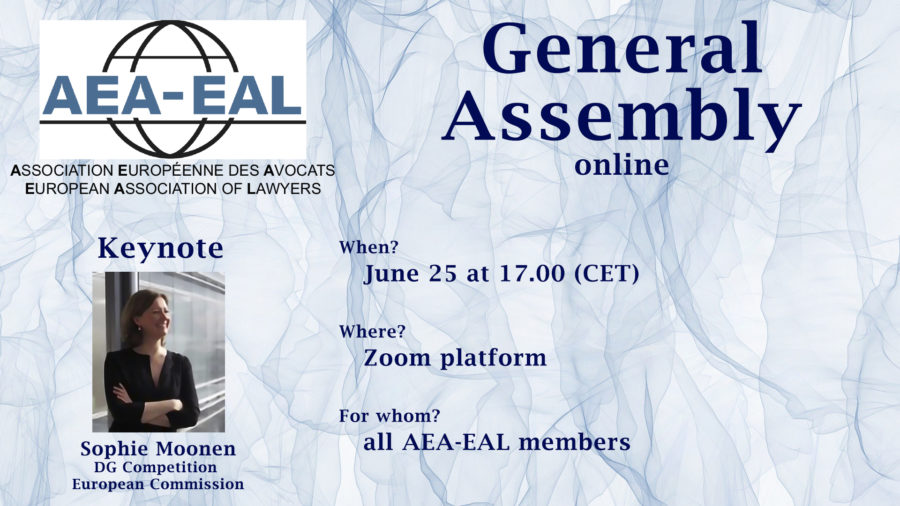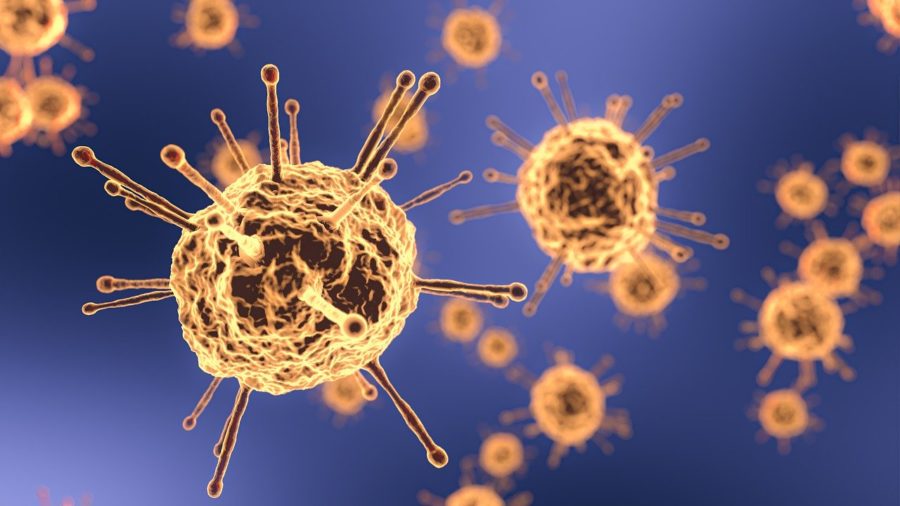May 23, 2020

Ph. D. Piotr Chrzczonowicz
A discussion concerning main identified fields of risk to existing (and preferred) standards in relation to the access to justice should be preceded by some reflections of a general nature.
- Access to justice must be treated as a basic principle of the rule of law (pandemic situation could be a temptation for authorities to soften this principle, to treat it in an instrumental way)
Access to justice is, in a country based on the rule of law, a general and collective procedural safeguard for anyone seeking justice, including a number of specific procedural guarantees, which are based on human rights protection standards expressed in international, EU and domestic law. This safeguard is available to every individual as well as every specific groups of persons in an equal and non-discriminatory manner. It is provided by a variety of legal and institutional solutions (e.g. exemption from legal costs, access to professional legal assistance – legal aid, right to information, right to interpretation and translation) [1] [2].
- A lack of true respect for neuralgic civil human rights (in the sphere of justice) means a lack of access to justice (pandemic situation caused that the access to justice had been troubled and limited in some terms)
There is no real access to justice if, in the normative or practical sphere, an adequate level of respect for human rights – individual or group rights – is not ensured (not achieved) by public authorities. ‘An adequate level of respect for human rights’ means the existence of legal regulations of a good quality, honest conduct of state bodies – investigative and judicial bodies in relation to humans involved in justice system (for instance, proper, scrupulous performance of their duties and tasks, delivering a reliable information about rights of persons facing justice, etc.). Also, there is no real access to justice without effective functioning of the system of aid institutions organized or supported by state authorities (like points of free legal aid for people, institutions providing specific assistance to victims of crime)[3].
- #Stay at home (and possibly suffer from domestic violence) – the influence of the COVID-19 pandemics on the development of domestic violence phenomenon is observed. Weaknesses of access to justice concerning domestic violence matters in times of pandemics are observed too.
Domestic violence certainly isn’t a new phenomenon but it provides new challenges in the context of a current pandemic and so-called lockdown restrictions [4] [5] [6]. In Poland, the implementation of the slogan ‘#stay at home’ (as a part of the prophylactic, anti-COVID-19 campaign) has resulted, among others, in deepening of the problem of domestic violence [7]. New outbreaks of domestic violence have been observed. And there, where violence has been occurred earlier, this phenomenon turned to be more intensive [8]. Victims of domestic violence have lost many possibilities of legal and factual actions [9]. Due to restrictions on the work of courts, the previously initiated proceedings for eviction of domestic tyrants (civil ones) have slowed down. On the other side, some new legal instruments to help victims of domestic violence have been created (in Poland, new anti-violence law was passed some weeks ago, on the 30th of April, 2020). This law enables the application of the instant separation of violence offenders from their victims (quicker procedures, more assistance and protection to victims) [10]. But, of course, this is the regulation – another issue is the practice (which quality and effectiveness largely depend on criminal policy priorities specified by proper bodies of the state).
- COVID-19 pandemic has become a source of serious challenges facing justice systems and justice-involved people (in domestic, transnational and international dimensions)
The COVID-19 pandemic situation, which is, in fact, sudden and unprecedented, has become a source of specific, serious challenges for justice systems in every rule of law country in the world, leading to questions and concerns about the efficiency of their functioning, their ability to maintain the existing relevant standards of the rule of law in different types of proceedings, their ability to deal with new problems, such as the large-scale use of new technologies to carry out their tasks, or their readiness to fulfil health and safety conditions for participants in different types activities which must take the form of direct human contact [11].
The abruptness and dynamics of the pandemic situation have compelled the authorities in many countries to introduce specific legal regulations ‘for pandemic times’. Due to the rush – such regulations aren’t always well-prepared from the technical and factual point of view, sometimes chaotic, difficult to be transparently interpreted and applied in practice, raising objections as to their compliance with the constitutional regulations of states or with the EU or international standards of law expressing the rule of law principle [12] [13].
E-justice and e-access to justice aren’t the distant future but they are not universal and similarly developed in every country. The COVID-19 pandemic in many countries has de facto started a revolutionary change in justice systems, consisting in the need to modernize them closely related to the use of new technologies, including those that facilitate or even make possible for a person the access to justice [14]. Yes, the symptoms of modernization have already been visible in justice systems before, but the current pandemic is a factor which accelerates clearly of the processes that are still ongoing, and their directions open discussions on bringing together the effectiveness of the functioning of the justice system with respecting of previously adopted standards concerning the access to justice by the interested parties (persons).
Globally, in many cases a pandemic shock was for justice like a sand spill in the rotating modes of a working machine. A number of justice systems slowed down, current works of their administration has been divided into those with more priority and those that can wait. This slowdown was made possible formally by special legal regulations of ‘pestilence times’ (e.g. suspension of limitation periods, deletions of dates of court hearings and other procedural activities as well as postponement of these activities). This slowdown occurred in connection with the necessary reorganization of the current functioning of justice systems – i.e. with regarding limitations that affected the current work rhythm of e.g. the police, prosecutors, judges or lawyers, but also their administrations: police stations, public prosecutor’s offices, courts’ administrations and legal offices [15] [16]. Moreover, it was connected with the necessity to adapt the employees of the justice administration and auxiliary apparatus to perform their duties remotely, outside their normal places of work, which was not always possible or entirely effective (not every case file could be kept at home, not every employee is advanced in using devices from the area of new technologies, not always – outside the place of work – it is possible to have access to internal IT systems of the administration of justice with data relevant to the case, also – safe and confidential communication – for instance with a client – is not always possible outside the place of work, outside the office). For example, in Poland, due to a pandemic situation, no courts’ hearings or courts’ open sessions were held for a longer time. The planned dates of hearings and open sessions have been deleted, at first – till the end of April, then, at least, until the end of May. Another example: the prosecutor’s office instructs about the rights of the parties – victims of crime and suspects, but it’s not very easy to exercise some of these rights effectively (e.g. the right to review the files of completed preparatory proceedings became, to a certain degree, not obvious in many public prosecutor’s offices).
Many people have been experienced and they are experiencing by difficulties in undisturbed access to justice, and the pandemic makes these difficulties more serious. Certain standards in this area, created in ‘normal’ times (for ‘normal’ times), do exist, but the pandemic shock has made that there emerged troubles to apply them. It is not always easy to obtain the assistance of an emergency lawyer in the procedure of so-called ex officio legal aid. The contact of a person deprived of his/her liberty (being in pre-trial detention, being a prisoner) with his/her lawyer has been subjected to restrictive conditions which may pose a threat not only to the value which is a freedom of contact, but also to the value which is a confidentiality of communication between a lawyer and a client (i.e. legal privilege) [17]. The access to a lawyer of a person in detention may be formally complicated. To exemplify it, in Poland, the Prison Service requires a certificate of health from a lawyer who wants to meet his/her client in a prison [18]. By the way, the increase in the use of forms of remote communication between the lawyer and his/her client has boosted a risk of violating the secrecy of such communication by state authorities willing to apply surveillance methods and instruments. There have appeared also some quite new challenges, such as the access to justice for specific subjects – coronavirus-infected persons (suspects, defendants, victims or other interested persons). For example, in Toruń, a suspect infected by coronavirus was interrogated through a videoconferencing system with devices installed in a public transport bus rented for this purpose from city public transport enterprise (interrogation was without the participation of a lawyer and it was linked to the proceedings concerning the issue of pre-trial detention).
The progressive ‘technologicalisation’ of access to justice may mean that the difficulties of such access will affect technologically excluded persons, who will be required – without any alternative in this respect – to use new technologies (e.g. sending procedural letters in their matters via e-mail) [19].
It appears that the exiting and required standards of access to justice often ‘hamper’ activities considered to be effective in preventing the spread of COVID-19.
In COVID-19 pandemic times, new technologies in access to justice seem to be not only comfortable, but also necessary. Institutions in the sphere of justice system are concrete places, but concrete places are less important things than concrete services which are supplied to people by such institutions. Mentioned services create justice and this is exactly what society needs and expects [20]. Of course, the application of new technologies opening justice in various situations cannot be chaotic and it needs proper, clear legal frames (if such frames haven’t been established yet). A usage of new, modern technologies to ensure well-functioning and flexibility of justice systems should be safe. Technological infrastructure, recommended devices and communication channels must allow to protect different types of data during the distant contact with representatives of investigative and judicial bodies. For instance, there arise questions on subjects (institutions) responsible for processing of plenty of data connected with the access to justice, how this processing will be controlled and who will be entitled to get the access to such data. Another question is on the quality of ‘shields’ giving effective security from cyberattacks and from harmful consequences due to such attacks.
- Access to justice – a new face of the procedural safeguard in pandemic times (some final reflections and postulates)
- Legal and practical solutions in the sphere of access to justice safeguard, prepared for pandemic times, should be compatible with standards of the rule of law and this compatibility should be monitored.
- Standards of access to justice should be equal for everyone who looks for it (i.e. for free people, people being in pre-trial detention, prisoners). It seems to be obvious in theory but, however, it isn’t obvious in practice.
- People seeking justice in institutions which demand from them a distant contact should have right to access to technological devices and communication technologies ensuring them safe forms of contact (protecting their privacy, personal data, contents of sending documents).
- New face of access to justice means also a new face of functioning of many lawyers in their professional life (contacts with clients, contacts with investigative and judicial bodies, new challenges in processing and protection of various types of data). Many lawyers will need advanced education in new technologies to do their work (routine professional activities). Safe professional relations with coronavirus infected clients (even if the infection or illness is potential) seem to be a special challenge.
- Domestic violence during pandemic seems to be a growing problem. Victims of domestic violence – a special category of victims (i.e. victims which can be characterized as vulnerable and sensitive ones) will need more external assistance, among others in effective access to justice (including contact with a lawyer, launching of criminal or civil proceedings, representation or support in such proceedings). In some countries (at least) new legal regulations establishing help instruments addressing to victims will be needed. However the law – important and necessary – should be completed by effective practice in its application.
- Access to justice demanding more new technologies and means of distant communication could be – on the one hand – easier but – on the other hand – not for all interested people (not effective access to access to justice for technologically excluded and marginalized persons).
- Access to justice, demanding more new technologies and means of distant communication, could be a value more exposed to surveillance from state services as well as to dangers of cyberattacks committed by cybercriminals.
The above-mentioned thoughts need to be discussed. Such discussion, I hope, will bring us a bit closer to answer the question on the value of access to justice in current pandemic times. Will this new and unprecedented situation make for people the justice closer or more distant?
References:
[1] Francesco Francioni (ed.), Access to Justice as a Human Right, Oxford University Press, Oxford – New York 2007 [passim].
[2] Handbook on European law relating to access to justice, European Union Agency for Fundamental Rights and Council of Europe, Publications Office od the European Union, Luxembourg 2016, pp. 15 – 22.
[3] V. Lima, M. Gomez, Access to Justice: Promoting the Legal System as a Human Right [in:] W. Leal Filho (ed.), Encyclopedia of the UN Sustainable Development Goals, Springer Publishing 2020, pp. 1 – 2, 3 – 4, 7 – 8.
[4] A. Taub, A New Covid-19 Crisis: Domestic Abuse Rises Worldwide. Movement restrictions aimed to stop the spread of the coronavirus may be making violence in homes more frequent, more severe and more dangerous, The New York Times, April 6 (updated: April 14), 2020, https://www.nytimes.com/2020/04/06/world/coronavirus-domestic-violence.html [17.05.2020].
[5] M. Godin, As Cities Around the World Go on Lockdown, Victims of Domestic Violence Look for a Way Out, Time, March 18, 2020, https://time.com/5803887/coronavirus-domestic-violence-victims/ [17.05.2020].
[6] C. Bettinger-Lopez, A. Bro, A Double Pandemic: Domestic Violence in the Age of COVID-19, Council of Foreign Relations, May 13, 2020, https://www.cfr.org/in-brief/double-pandemic-domestic-violence-age-covid-19 [17.05.2020].
[7] A. Wądołowska, Locked down with a violent partner: domestic violence soars in Poland during coronavirus pandemic, NFP [Notes from Poland], April 13, 2020, https://notesfrompoland.com/2020/04/13/locked-down-with-a-violent-partner-domestic-violence-soars-in-poland-during-coronavirus-pandemic/ [18.05.2020].
[8] I. Le Page, Fears of domestic violence rise as millions confined over virus, CTV News, March 28, 2020, https://www.ctvnews.ca/health/coronavirus/fears-of-domestic-violence-rise-as-millions-confined-over-virus-1.4872437 [18.05.2020].
[9] M. Nightingale, J. Hofman, S. Grand-Clement, Resources for Covid-19 abuse victims ‘insufficient’, EUobserver, London, 8 May, 2020, https://euobserver.com/opinion/148294 [17.05.2020].
[10] Sprawcy przemocy domowej będą natychmiast izolowani. Sejm przyjął ustawę antyprzemocową, Gazeta Prawna.pl, 30.04.2020, https://prawo.gazetaprawna.pl/artykuly/1473817,sprawcy-przemocy-domowej-beda-natychmiast-izolowani-sejm-przyjal-ustawe-antyprzemocowa.html [18.05.2020].
[11] See, for instance, documents gathered by CCBE and available at: https://www.ccbe.eu/actions/covid-19/#c3165 [18.05.2020].
[12] The impact of Covid-19 on human rights & the rule of law – Council of Europe standards (part 1 of 2), webinar, https://www.youtube.com/watch?v=ZsehViuAWHE&feature=youtu.be [18.05.2020].
[13] The impact of Covid-19 on human rights & the rule of law – Council of Europe standards (part 2 of 2), webinar, https://www.youtube.com/watch?v=ac3-t99bLyc [18.05.2020].
[14] R. Kuybida, How COVID-19 Forces Courts to Operate Creatively Under New Circumstances, Reanimation Package of Reforms, https://rpr.org.ua/en/news/how-covid-19-forces-courts-to-operate-creatively-under-new-circumstances/ [18.05.2020].
[15] Impact of the COVID-19 virus on the justice field, European e-justice, https://e-justice.europa.eu/content_impact_of_the_covid19_virus_on_the_justice_field-37147-en.do [18.05.2020].
[16] Management of the judiciary – compilation of comments and comments by country, Council of Europe, European Commission for the Efficiency of Justice (CEPEJ), https://www.coe.int/en/web/cepej/compilation-comments#Poland [18.05.2020].
[17] See, for instance: E. R. Bailey, Attorney-client privilege should not stop at the prison gate, Buckley LLP, Lexology, https://www.lexology.com/library/detail.aspx?g=788285e3-71ac-4af4-abba-36c6cefb3c8d [18.05.2020].
[18] Koronawirus: Sytuacja w więzieniach budzi poważne obawy. RPO do Służby Więziennej, Rzecznik Praw Obywatelskich, https://www.rpo.gov.pl/pl/content/koronawirus-rpo-sytuacja-w-wiezieniach-budzi-powazne-obawy [17.05.2020].
[19] R. Smith, Technology and Access to Justice: a help or hindrance?, March 20, 2019, Law technology and Access to Justice, https://law-tech-a2j.org/digital-strategy/technology-and-access-to-justice-a-help-or-hindrance/ [17.05.2020].
[20] J. Richards, How will the justice system withstand the coronavirus pandemic? When courts close more fully, consequences will reach every corner of society, Prospect, March 18, 2020, https://www.prospectmagazine.co.uk/politics/how-will-the-justice-system-withstand-the-coronavirus-pandemic-covid-19-outbreak-courts-democracy-law [18.05.2020].










